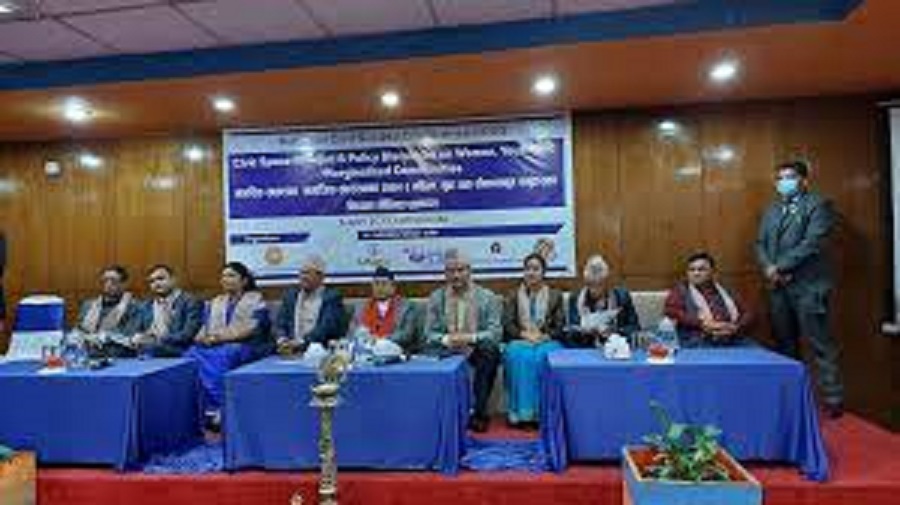

Civil rights activists have urged the State to recognize the role of civic movement in bringing positive changes in the society- be it a social, economic, cultural or political.
Airing their views in the concluding day of the two-day National Civil Society Conference 2023 in the federal capital on Friday, civil society leaders reminded the government and political parties of civic roles, cooperation and contributions, which as they argued, were significant and even proved to be a milestone in paving outlet to each crisis.
At the event organised by the NGO Federation of Nepal with the support of various other organizations, Federation’s former president and civil society leader Gauri Pradhan was quite critical of the government approach towards civil society. As he complained, the State including political parties seek civic space in the crisis. When the problem is sorted out, civil society is no more priority of the political parties, he showed concern.
“Either it was a movement against autocracy, the Panchayat system, and monarchy or for democracy or during the war, we were together with political parties, but whenever political parties got their interests fulfilled, we were estranged to them. Such tendency is not fair at all,” he said.
Recalling the contribution of noted civil society leaders Damannath Dhungana, Krishna Pahadi, Dr Mathura Prasad Shrestha, Padma Sundar Tuladhar and so on to the improvement of civic rights, the former member of National Human Rights Commission termed the civic movement as an instrument of strengthening people’s voice and their presence, thereby promoting democracy.
Seeking civic space in government policies, programmes, plans and in overall actions, Pradhan however said civil society is always ready to work together with the government.
House of Representatives (HoR) member and Nepali Congress Joint General Secretary Jeevan Pariyar who has a background of a social activism proposed the government to recognize civil society as the ‘fifth organ’ of the State and one of its major department partners. He added that wherever he reached so far to share a platform with social activists, he came to know that they were not happy over the State’s perception towards civic organizations.
Chairperson of an organization, AIN, Bhagawan Shrestha, advised civil society to give attention to diversity, inclusion, equality and equity in their actions.
Former Minister and CPN (Maoist Centre) leader Satya Pahadi said the presence of civil society should not be undermined while former Minister and CPN (UML) leader Parbat Gurung urged civil society to choose agenda as per the need of time.
General Secretary of the Federation of Nepali Journalists, Roshan Puri, who was among those sharing the forum with a group of civil society people on the occasion, was of the view that it seemed that time once again needed collective efforts among civil society and media to protect and promote democracy and the rule of law. As he claimed three-tier government and political parties are directly or indirectly supporting attempts to dismiss civic voices, freedom of the expression and free press under different pretexts including through the Media Bill. Media-civil society cooperation is necessary to reverse any attempts against democracy, he underscored.
Deputy Speaker of Koshi Province, Sirjana Danuwar, who has a background of working as a social activist, said civil society was together with political parties during the street movement for change, movements for democracy and freedom. That’s why, civil society deserves the acknowledgement from them and the State.
NHRC Chairperson Top Bahadur Magar said civil society had contributed to promoting the civic freedoms, right to be informed and in improving the human rights. Such organisations helped the State make people feel its presence, he added.
The NHRC Chief hoped that the State would enable a healthy and encouraging atmosphere for civil movement, civic space and the civil rights.
The programme also recorded advises for civil society for maintaining economic discipline, transparency, self-assessment of delivery and for doing more to promote good governance.
According to NGO Federation Executive Director Hum Bhandari, the annual event aims to provide a forum for wider discussions on the relevant issues, assess the existing scenario and explore further possible ways for betterment. Around 600 participants from across the country attended the event held with the theme of “Partnership for Disaster Resilience, Sustainable Development and Prosperity: Vigilance for Identification of Freedom, Good Governance and Social Sector.”